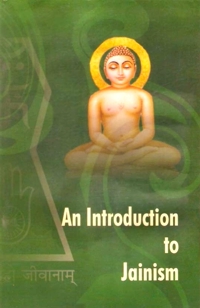Doctrine of Guṇasthāna
Fourteen stages of the spiritual development of the jīva have been propounded on the basis of the purity of soul attained on account of the proportionate shedding of karma. These stages are called jīvasthāna or guṇasthāna.
The fourteen guṇasthāna of the soul are:
1. Mithyādṛṣṭi
This is available to the souls possessed of perverted belief. Such souls hold a perverse notion about Truth. In the first guṇasthāna, minimum purity of soul is possible on account of the least supression-cum-elimination of Mohaniyakarma. The dṛṣṭi (belief) obtained through the minimum supression-cum-elimination is called Mithyādṛṣṭi and the soul possessed of such dṛṣṭi is also called Mithyādṛṣṭi.
The Mithyādṛṣṭi soul does not believe in soul, liberated soul, emancipation etc.; still every soul is endowed with an iota of right understanding. Such understanding of a Mithyātvī is Mithyādṛṣṭi Guṇasthāna.2. Sāsvādana Samyagdṛṣṭi
This state is not obtained while climbing up, but gained by the soul proceeding to Mithyātva, abandoning the Samyaktva. This state is comparable to a leaf, which has started falling, but still has not reached the ground.
3. Miśra
This state stands for the intermediate state between the Samyaktva and Mithyātva. This state is attained if there is any doubt in any of the category of truth. This stage prevails for an antarmuhūrta, afterwhich the soul either falls back to the first stage or rises up to the fourth stage or above.
4. Avirati Samyagdṛṣṭi
In this stage,' right belief manifests completely but capability of accepting vow is not developed.
5. Deśavirati
In this stage, the soul attains the capacity of observing the partial vows prescribed for the lay followers.
6. Pramatta Saṃyata
This is the stage of the soul which becomes fully self-restrained by accepting the great vows of an ascetic, but he is still in the grip of remissness (pramāda).
7. Apramatta Saṃyat
Here the ascetic becomes free from remissness. Each moment is spent in complete alertness and spiritual vigilance. But this state cannot last for a time longer than an antaramuhūrta.
8. Nivṛttibādara or Apurvakaraṇa
The soul attains special purification which it had never experienced before. This guṇasthāna is also known as apurvakarana. Here, starts the subsidence or elimination of the gross passions. A pair of ladders originates from this guṇasthāna:
1. Upasama Śreni - the ladder of subsidence.
2. Ksapaka Śreni - the ladder of elimination.
In the former ladder, the soul progresses further by subsiding the conduct-deluding karma, whereas in the latter on, the soul clinds up by eliminating it.
The soul's maximum stay at this stage is for antarmuhūrta.
9.
Anivrttibādara
At this stage, the aspirant staits getting control over the subtle forms of passions.
10.
Sukṣamasamparāya
At this stage, soul becomes free from the influence of all the passions excepts very subtle greed.
11.
Upaśāntamoha
In this stage, Mohaniya Karma gets fully subsided.
12.
Ksīṇamoha
In this stage, Mohaniya karma gets completely annihilated.
13.
Sayogi Kevalī
In the very first instant of this stage, the jīva destroys the remaining three ghātī karmas viz., Jñānāvaraṇiya karma, Darśanāvarṇiya karma, Antarāya karma. The soul now becomes omniscient (Kevalī). But, still he indulges in the activities of body, speech and mind.
14.
Ayogi Kevalī
This is the last and final stage of spiritual development. Here the soul becomes free from all activities and becomes motionless like a mountain. After staying in this state for a short time (equivalent to time taken for pronunciation of five short vowels) the soul becomes emancipated.
 Sadhvi Vishrut Vibha
Sadhvi Vishrut Vibha

